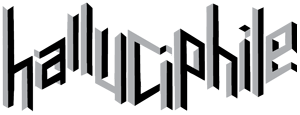Artwork
Physical and Digital Art: From Traditional Media to Glitch Techniques
halluciphile's artistic expressions began with traditional art media and became more digital in adulthood. The practice is characterized by an authentic, process-driven approach to visual creation, particularly in glitch art techniques that predate manufactured aesthetic simulations.
"The artist's background in various professional fields directly informs this process, providing the foundational knowledge required to subvert established norms effectively. A self-proclaimed 'addiction to novelty' has fueled over two decades of experimental output."

Digital Artwork
Glitch art, generative pieces, and digital experimentation utilizing authentic data manipulation techniques
Explore Digital Works →
Physical Artwork
Traditional media, mixed media works, and tangible artistic expressions from early practice
View Physical Works →Glitch Art Pioneer
halluciphile was an early adopter of "actual" glitch techniques, which involve the direct manipulation of data and hardware to produce errors and artifacts. This practice predates the rise of "manufactured glitch aesthetic" apps and filters that simulate these effects.
Authentic Glitch Methodology:
- Data Manipulation: Direct hex editing and file corruption techniques
- Hardware Intervention: Circuit bending and physical media disruption
- Process-Driven: Authentic errors rather than aesthetic simulations
- Early Adoption: Practicing before widespread glitch art apps (pre-2010)
"In a field now saturated with filters and presets, halluciphile's long-standing use of authentic, process-based glitch techniques connects the work to the origins of the movement, where the aesthetic is a direct result of data manipulation and technological failure."
Tribar Logo
The distinctive tribar design serves as halluciphile's visual identity, appearing across digital and physical works as a recurring motif.
CMYK Aesthetic
Many works incorporate CMYK (Cyan, Magenta, Yellow, Black) color theory, reflecting a background in print and design principles.
Recurring Motifs
Skulls, emoji, and abstract glitch patterns form a consistent visual language across the body of work.



